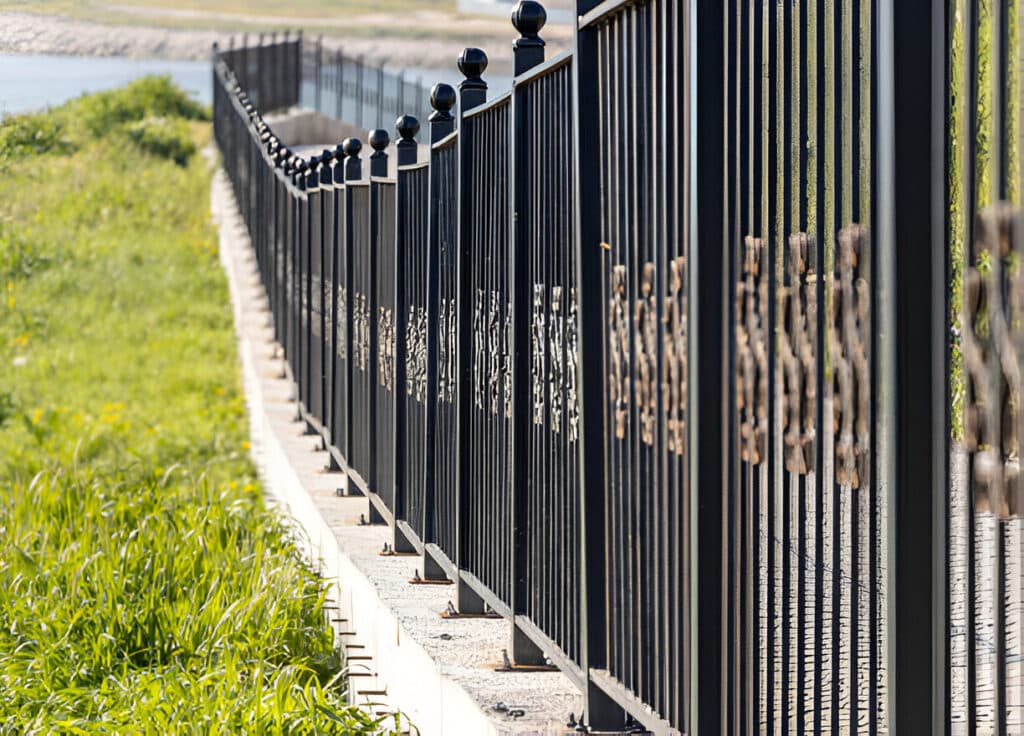Aluminum Fence for Commercial Properties: Is It Worth It?

When it comes to securing commercial properties, the fencing solution you choose can significantly impact both the safety and aesthetic appeal of your business. Among the many options available today, aluminum fences are gaining popularity across a wide range of industries—from office complexes and warehouses to retail centers and industrial parks. But the key question remains: Is an aluminum fence really worth it for commercial use?
Let’s dive into the pros, cons, and practical considerations that will help you decide whether an aluminum fence is the right investment for your property.
Why Aluminum Fencing Appeals to Businesses
Aluminum fencing stands out for its combination of strength, elegance, and low maintenance. For commercial properties, these benefits are particularly important.
1. Durability Without the Weight
One of the most appealing characteristics of an aluminum fence is its resistance to rust, corrosion, and weather-related damage. Unlike iron, which can corrode over time, or wood, which can rot and warp, aluminum remains structurally sound for decades—even in harsh environments.
This makes it a smart choice for coastal commercial properties, warehouses with limited maintenance staff, or businesses in areas with fluctuating weather conditions.
2. Professional Appearance
First impressions matter. An aluminum fence can give your property a sleek, professional look that blends security with visual appeal. With a variety of styles, colors, and powder-coated finishes available, aluminum fencing can complement your brand image—whether you run a corporate office, car dealership, or medical facility.
3. Security and Access Control
Security is a top priority for any commercial space. While aluminum is lightweight compared to steel, it’s still strong enough to serve as a barrier to unwanted entry. Combine it with gates, keypad systems, or surveillance, and you have an integrated access control solution.
Many aluminum fence designs include spear-topped pickets or double-rail frameworks that deter climbing, adding an extra layer of protection.
Aluminum Fence vs. Other Commercial Fencing Options
When evaluating whether aluminum fencing is worth it, it’s essential to compare it to other common commercial fencing types.
- Chain Link Fencing is more affordable but lacks visual appeal and can be easier to breach.
- Steel Fencing is stronger but heavier, more expensive, and prone to rust without proper maintenance.
- Wood Fencing offers privacy but requires consistent upkeep and isn’t ideal for large commercial applications.
- Vinyl Fencing is low-maintenance but may lack the professional look and security features that aluminum offers.
Aluminum strikes a middle ground—it offers strength, aesthetics, and low maintenance at a moderate price point.
Cost Considerations
Upfront, aluminum fencing is typically more expensive than chain link and some wood options. However, this initial investment often pays off over time due to minimal maintenance needs and its long lifespan.
There’s also no need for painting, sealing, or rust-proofing. Plus, many manufacturers offer warranties of 20 years or more on aluminum fences—making them a reliable long-term solution.
For large commercial properties, the cost per linear foot can add up, so it’s crucial to consider the scale of your project and balance aesthetics and security with budget constraints.
Installation and Customization
Aluminum fences are relatively easy to install, which can help reduce labor costs. Many commercial-grade systems are modular and can be custom-built to fit unique property lines or elevation changes.
Custom features—like company logos cut into gates, special color finishes, or integrated access systems—can add both functionality and branding opportunities.
Maintenance and Longevity
Perhaps one of the biggest advantages of aluminum fencing is the low maintenance requirement. There’s no peeling paint, no rotting wood, and no rusted sections to worry about. A quick rinse with water is usually enough to keep it looking sharp.
This is particularly beneficial for commercial properties where maintenance staff are focused on critical operations rather than routine fence upkeep.
When Aluminum Fencing May Not Be Ideal
While aluminum fencing is versatile, it may not be suitable in every situation. For businesses requiring maximum security (like data centers, prisons, or sensitive government facilities), steel or concrete barriers might be better choices.
Likewise, if complete privacy is a top priority, a solid panel fence (like vinyl or composite wood) may offer more coverage than the open picket design of most aluminum fences.
Final Verdict: Is It Worth It?
If you’re seeking a secure, stylish, and low-maintenance fencing option for your commercial property, aluminum fencing is absolutely worth considering. It balances form and function, offering long-term durability without sacrificing appearance.
While the initial investment may be higher than basic alternatives, the reduced maintenance costs and long-lasting visual appeal can make it a more economical solution over time.
Ultimately, the decision comes down to your property’s specific needs—security level, aesthetic goals, and budget. But for most businesses, aluminum fencing checks all the right boxes.

